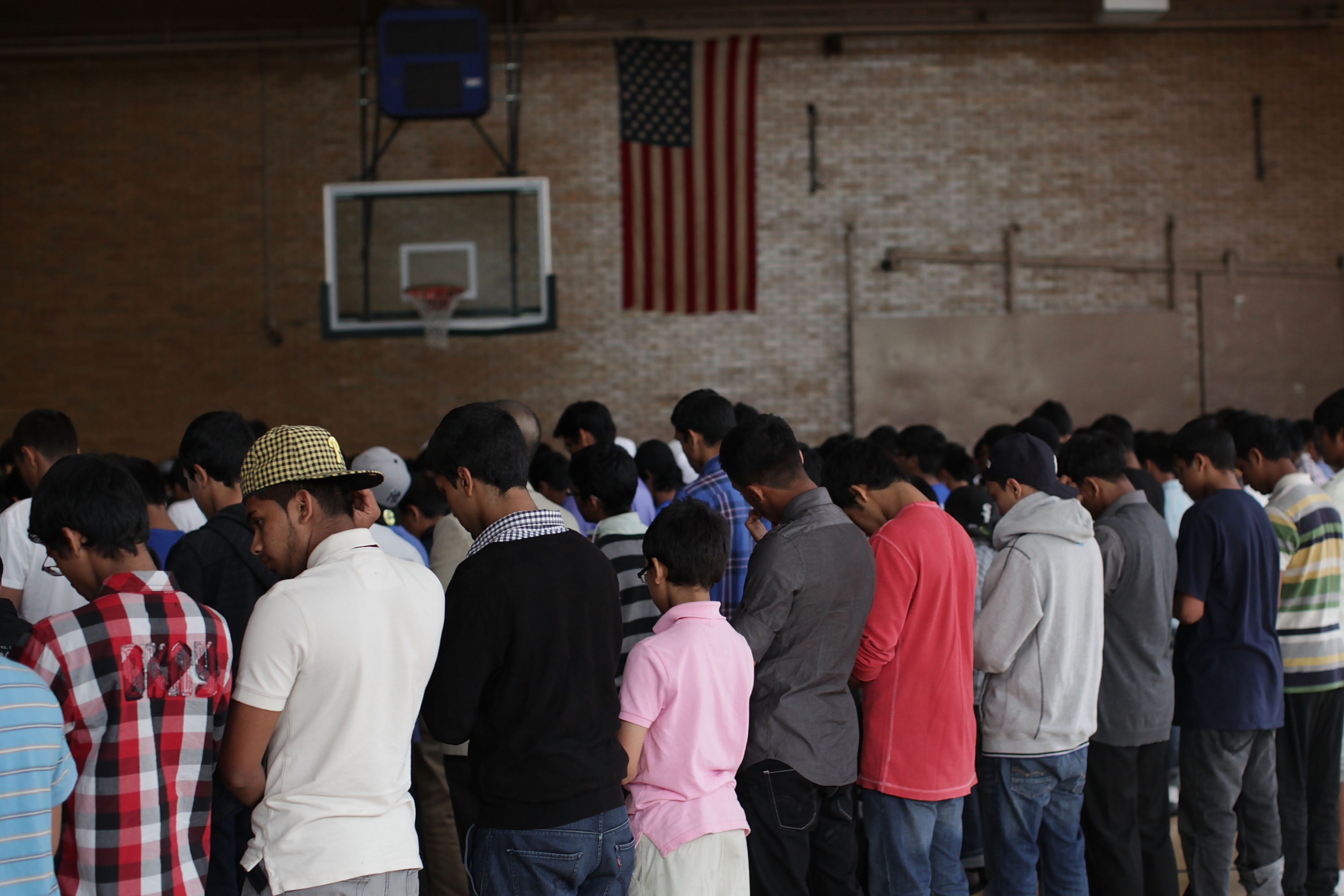How Americans think about Muslims mostly comes from the headlines they read


A free daily email with the biggest news stories of the day – and the best features from TheWeek.com
You are now subscribed
Your newsletter sign-up was successful
How Americans perceive Muslims is linked primarily to headlines — which makes sense, because most Americans haven't even spoken to a Muslim in the past year, The Washington Post reports.
According to the Public Religion Research Institute's American Values Survey, which was conducted before the Nov. 13 Paris terror attacks, 56 percent of Americans believe the values of Islam conflict with values of the United States.
However, since the U.S. Muslim population is relatively small — only about 1 percent — and spread out across a handful of cities, many Americans are forming opinions about Islam from a distance. In 2011, seven in 10 Americans said they hadn't even talked to a Muslim in the past year. In 2013, another survey found that a majority of Americans couldn't even locate Syria — a predominantly Muslim country — on a map.
The Week
Escape your echo chamber. Get the facts behind the news, plus analysis from multiple perspectives.

Sign up for The Week's Free Newsletters
From our morning news briefing to a weekly Good News Newsletter, get the best of The Week delivered directly to your inbox.
From our morning news briefing to a weekly Good News Newsletter, get the best of The Week delivered directly to your inbox.
That's a problem, considering "the act of simply knowing someone from a minority group can be a powerful perception game-changer," The Washington Post reports.
Look no further than the recent speedy cultural shift toward accepting gay and lesbian Americans [...] In fact, by the time the Supreme Court legalized same-sex marriage in June, nine in 10 Americans said they knew someone who was gay. It would seem Americans don't have that kind of connection with Muslims.Filling that knowledge gap is, of course, the media. And the brutality of the Islamic State — taped beheadings, brash threats, the Paris attacks — is dominating most American news coverage about Islam these days. [The Washington Post]
President Obama has also recently condemned the media for its portrayal of Islam. "We will not give in to fear, or start turning on each other, or treating some people differently because of religion or race or background. That's precisely what terrorists like ISIL want, because, ultimately, that's the only way they can win," he said.
A free daily email with the biggest news stories of the day – and the best features from TheWeek.com
Jeva Lange was the executive editor at TheWeek.com. She formerly served as The Week's deputy editor and culture critic. She is also a contributor to Screen Slate, and her writing has appeared in The New York Daily News, The Awl, Vice, and Gothamist, among other publications. Jeva lives in New York City. Follow her on Twitter.
-
 Political cartoons for February 14
Political cartoons for February 14Cartoons Saturday's political cartoons include a Valentine's grift, Hillary on the hook, and more
-
 Tourangelle-style pork with prunes recipe
Tourangelle-style pork with prunes recipeThe Week Recommends This traditional, rustic dish is a French classic
-
 The Epstein files: glimpses of a deeply disturbing world
The Epstein files: glimpses of a deeply disturbing worldIn the Spotlight Trove of released documents paint a picture of depravity and privilege in which men hold the cards, and women are powerless or peripheral
-
 Nobody seems surprised Wagner's Prigozhin died under suspicious circumstances
Nobody seems surprised Wagner's Prigozhin died under suspicious circumstancesSpeed Read
-
 Western mountain climbers allegedly left Pakistani porter to die on K2
Western mountain climbers allegedly left Pakistani porter to die on K2Speed Read
-
 'Circular saw blades' divide controversial Rio Grande buoys installed by Texas governor
'Circular saw blades' divide controversial Rio Grande buoys installed by Texas governorSpeed Read
-
 Los Angeles city workers stage 1-day walkout over labor conditions
Los Angeles city workers stage 1-day walkout over labor conditionsSpeed Read
-
 Mega Millions jackpot climbs to an estimated $1.55 billion
Mega Millions jackpot climbs to an estimated $1.55 billionSpeed Read
-
 Bangladesh dealing with worst dengue fever outbreak on record
Bangladesh dealing with worst dengue fever outbreak on recordSpeed Read
-
 Glacial outburst flooding in Juneau destroys homes
Glacial outburst flooding in Juneau destroys homesSpeed Read
-
 Scotland seeking 'monster hunters' to search for fabled Loch Ness creature
Scotland seeking 'monster hunters' to search for fabled Loch Ness creatureSpeed Read
